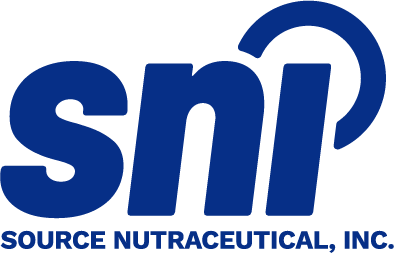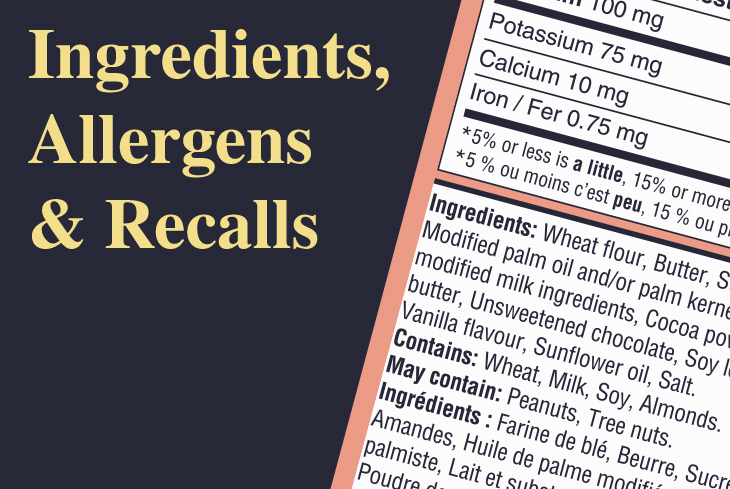More than 2.6 million Canadians live with food allergies, with over half of those being children [1]. While there is no cure for food allergies, it can be managed by avoiding the food allergen through carefully examining food labels.
Food allergens can be present in the most unexpected places, so how can you tell if a food product is safe for you to eat?
Although inspecting food labels at the grocery store can eat up time, it’s a necessary part of managing your allergies or dietary restrictions. Through various labelling regulations set by Health Canada, nutrition information and ingredient lists are designed to be simple and easy to understand, allowing consumers to make educated decisions when it comes to purchasing food.
Ingredient lists are required on nearly all packaged food, with the exception being products composed of a single ingredient, such as vinegar, or a produce item, such as a package of one type of mushrooms. Common allergens must be clearly declared on labels, either within the ingredients list or in a “Contains” statement right after the list of ingredients. In Canada, the priority allergens are eggs, milk, mustard, peanuts, crustaceans and shellfish, fish, sesame seeds, soy, sulphites, tree nuts, and gluten including barley, oats, rye, triticale and wheat. Failure to declare these allergens within a prepackaged food product could cause an allergic reaction, result in a food recall or other costly penalties as a result of violating regulations set by Health Canada.
Although we more frequently hear about food safety recalls due to salmonella, E. coli, or foreign material like rubber or metal, a recall caused by undeclared allergens is just as serious. A recall due to undeclared priority allergens can be triggered by a few different things, including consumer complaints, food test results, or a CFIA inspection finding. Regardless of the reasoning, a food recall from undeclared allergens can be very costly and negatively affects a brands reputation.

The recall itself can cost a hefty amount, but a damaged reputation can result in short earnings in the long run.
The solution? Don’t cut corners, this probably isn’t a good situation to test out the “DIY” route. Working with a professional company that specializes in labelling compliance to ensure your packaging is safe to hit the shelves is the recommended route to go to.
Our team at Source can provide a regulatory review of your label to ensure you are in compliance with the updated regulations and help get your products on the shelf. We’re always here to help!
References: [1] Food Allergy Canada, “Preventing food allergies,” 2019. [Online]. Available: https://foodallergycanada.ca/food-allergy-basics/food-allergies-101/preventing-food-allergies/.




